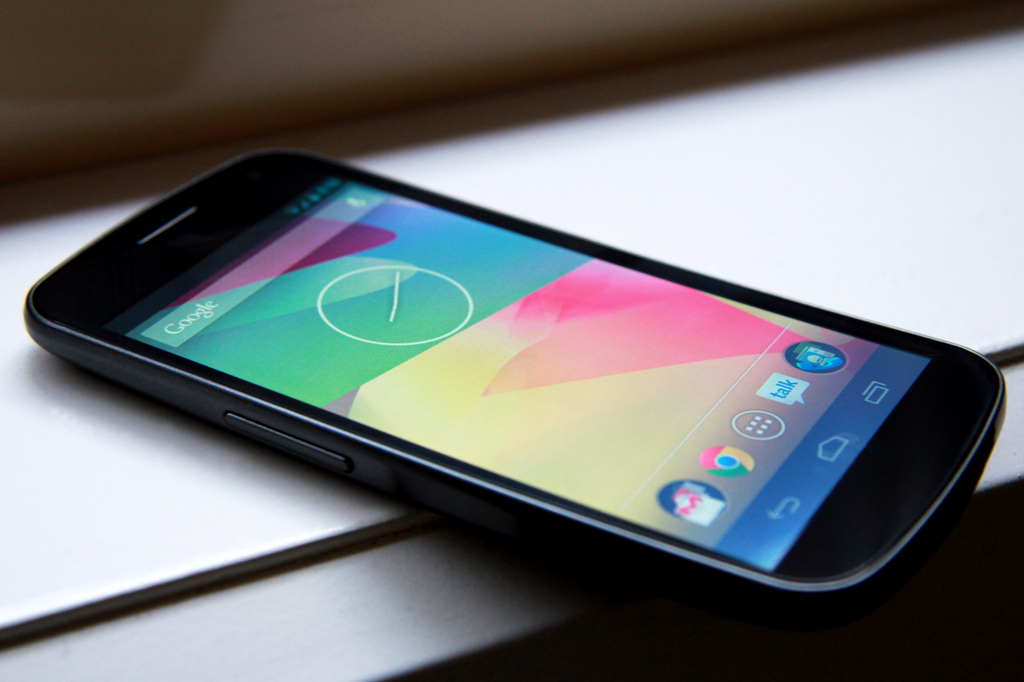This is an extremely detailed series of posts that applies not only to First Home Buyers, but also to existing home-owners. The point is to cover the most major expenses and how to make sure that your mutilation powers are at their highest with all of them. You want details? Read these!
Personal Bills, like Home Bills, should of course be minimised as much as possible when you’re trying to mutilate that mortgage. There also shouldn’t be too many of them as most of the normal bills are covered by the home expenses in last week’s post. Four of the top Personal Bills that come to mind are:
- Mobile Phones
- Credit Card Repayments
- Life Insurance
- Private Health Insurance
Table of Contents
Mobile Phones
These seem to be a big weakness of the Australian population (myself included). I must admit that phones and the mobile industry is one of my biggest interests and one of the few luxuries that I allow myself, however as of late I’m even cutting back on this as although I have the money to purchase a new phone or go on a new plan and receive a “free phone”, it again is just wasteful.
You don’t need a new phone every two years. If you REALLY need a new phone every year or two, chances are you’re not taking good care of said phone. It’s not a solid block of metal like your keys, you can’t throw it across the room or let it fall out of your pockets. It is an incredibly complex piece of technical engineering and should be treated like you would a tiny puppy.
If it helps to remind you, feel free to put this picture of a cute puppy as your background. It should always be in a secured location, protected from the elements and never dropped. My phones never have covers on them and yet they seem to fair 100x better than most others because of this care. Treat your phone well and it will work for you for many years, you also shouldn’t need to “upgrade” any time soon as even the cheapest phones now have more than enough power, screen real estate, and capabilities. Is your battery not lasting as long as before?
Simple, buy a new one off eBay and keep on keeping on. Proper care of your phone will enable you to keep it well past the 2 year contract length, thus opening you up to being able to go on “BYO” plans. Getting a “free” iPhone on ridiculous plans such as the Telstra “$100 Every Day Connect Plan” or the “$80 Optus Cap” should be avoided at all cost.
I recommend going for one of the excellent BYO phone plans that tend to cost a pittance and yet supply large amounts of calls and data. One such example is the iiNet BYO $20 plan. At the time of writing this they will give you $450 worth of calls and 1.5GB of data for $20/month. Couple that with your well taken care of phone and you’re laughing for a number of years.
As a straight off comparison a large number of people I know regularly commit to an $80/month plan. Making this change would save them $720 every year, and the allowance rates of iiNet’s plan isn’t exactly “roughing it” either… One side note for that particular plan is that you must have Internet with iiNet too, however I’d highly recommend their Naked ADSL anyway.
If iiNet isn’t your bag baby, there are many other MVNO’s (mobile virtual network operators) that you can find operating in Australia with a simple Google search. In a sentence, to reduce mobile phone bills take care of your phone like it’s a puppy, keep it for many years, switch to a BYO MVNO plan and save yourself hundreds every year whilst still receiving very good service and allowances.
Credit Card Repayments
CC’s should be something that is dealt with immediately in most cases. If these are incurring ANY type of interest it will usually be VERY high so make sure your balance is $0 ASAP. I would even recommend paying this off FIRST before your mortgage as they normally charge a higher interest rate. Try as hard as possible to get these debts cleared and at the same time cut up that card forever if you aren’t able to control your spending on them.
Chances are, if you have a decent amount of CC debt it’s because you lack the self-control to use it properly. To be honest, not having enough self-control is 100% OK! What is NOT OK is knowing that you don’t have self-control and then setting yourself up for disaster anyway. A lot of people often will keep the Credit Card and simply “try harder” the next time.
They think that they can beat it simply by using their will power and being “good” with it the next time around, however because we only have a limit supply of will power, eventually you’re going to slip up again. Most see this as some kind of weakness but in fact it’s just human nature and you should learn to be OK with this side of your personality. Then make the conscious decision to use a Debt Card which should remove the problem entirely.
You won’t have to “be good” any more and thus, it should solve the issue completely. These behave exactly the same as a Credit Card (without the rewards though) and you can’t over draw them usually which means no more CC debt. I’ve had mine (free with my bank account) now for years and it’s fantastic. Other ways to get a CC repayment bill down in cost if you do have them is to call up the bank and simply ask for a lower interest rate.
I’ve covered how to negotiate with banks before so employ some of those methods and you should be able to coax them into giving you some form of discount. Ultimately the person on the other end is a human just like you and if you are polite and genuine (and they’re in a good mood) there should be something they can do for you.
The other alternative is to roll your CC debt INTO your mortgage. This means that if you have a $10,000 CC debt at say 10% interest, you can increase your mortgage by that $10,000 and pay off the CC debt. You then still have to pay off that $10,000, except it’s at the interest rate of your mortgage, which will likely be around the 6% or so rate saving you quite a bit.
There are also debt help lines that you can contact that will no doubt have many more options as well as special contacts that can help out. Do be careful that THEY don’t try and take advantage of you too though! In a sentence though, CC Debt should be prioritised over ALL else, should be cut up if you can’t control yourself and paid in full ASAP. Then, use a Debit Card. If you can control yourself though and enjoy their rewards, just make sure you have a system to pay them off in full each cycle so no interest is ever racked up.
Life Insurance
“Living Benefit” or “Trauma Insurance” are all insurances that pay you a lump sum of money if you end up with total loss of hearing, total loss of sight or are diagnosed with a certain specific list of diseases. It is a tricky one as it’s highly dependent on your situation, age, debt level and so on. Obviously, just like I’m not a registered financial adviser, I’m also not a registered insurance specialist either, so make sure all your particular circumstances are considered when dealing with this expense.
Generally though, my view is that as soon as we are debt free and have $50,000 – $100,000 saved up for an emergency, we’ll be dropping this cover. You maybe more inclined to throw caution to the wind and never have it at all (which will of course save you the most money), however we always like to play the safe option :-) As for saving on this, proper research and reading of PDS’s will do you well.
The more effort you put in, the less you will have to pay usually. There are also Life Insurance Brokers who can help you narrow down your options and also sometimes get you better deals.
Private Health Insurance
This is something in Australia that’s for the most part a must. Due to the Medicare Levy Surcharge of an extra 1% on your income if you DON’T have it (and are single above $84,000), it’s usually just as expensive to have it than not. If you don’t know what this surcharge is, basically if you do not have private health insurance then the ATO will charge you an extra 1% of tax each year.
So if you don’t have private health insurance and an income of $90,000, you’ll be slugged an extra $900 worth of tax (more detailed info here). It’s Australia’s way of “encouraging” everyone to use the private health care system. So assuming you have private health insurance, the best way, once again, to keep this cheap is to do your research.
The more you do, the more you’ll save normally. Health care is ridiculously complex and (to put it bluntly) retarded so I’d highly recommend creating a quick spreadsheet so you can at least to some degree compare all the various options with one another equally. There are two main sections to consider, Hospital and Extra’s. Hospital covers (of course) hospital visits and these are the things that can end up costing many, MANY thousands of dollars very quickly.
It’s essentially unlimited how much it can go to so it makes a lot of sense to have this at your correct level. Extra’s on the other hand covers things like the dentist, optometrist, psychiatry and chiropractic. The thing to note here is that they only cover PART of the bills you will get from these medical places, and even then, these costs are most of the time NOT unlimited in nature. A dentist can charge you a fair bit for a full root canal or 5 fillings (both serious work) but ultimately it’s still only a few thousand or so. Not unlimited.
Because of this, I tend to have the lowest Extra’s cover, with a low-medium Hospital cover plan. It helps that I’m very healthy so you may wish to up your Hospital care if required, but after a lot of math and calculations I just can’t ever find where going on a high Extra’s plan is really worth it. They increase the amount you pay by hundreds each year and even if you do use a dentist or optometrist every year it’s still often cheaper to just pay for it rather than have the insurance company take a set amount each year.
When you think about it, if the insurance company was to REALLY be paying all their customers on Extra’s plans more money for their Extra’s bills than what they were being charge each year on insurance costs… they’d go broke. So reason stands that you’ll be statically likely to pay more per year for your high Extra’s plan than you will actually use it and get refunds. This principle also applies to ALL insurances and there’s a great piece by ERE on the matter here:
Think of insurance as a money transfer from people who get into accidents less often to people who get into accidents more often with insurance companies taking a cut (this is called the combined ratio) of typically 10% to arrange this transfer.
Next up we’re tackling the ever delicate art of Gift Giving!
<- Previous Post: Starting Out On A Roll Part III: Home Bills
Next Post: Starting Out On A Roll Part V: Gift Giving ->
The benefits include: 1) How to pay off your mortgage faster than 99% of people with one hour a month of work 2) How to get rid of your debt and have the freedom to spend money on the things you love, guilt free 3) Clear outline of how to setup your expenses, mortgage and general finance 4) How offset accounts work and how to get the same result without being gouged by the big banks 5) How to cut through the crap and focus on the things that truly matter when taking down a mortgage 6) How to adjust the strategy so it works for you, even if you have kids, even if you only have one income 7) How to do all of these things and maintain a normal social life (and never be cheap).


